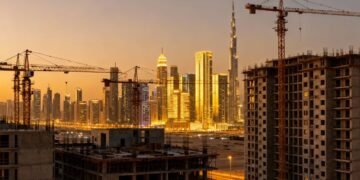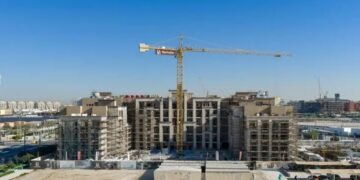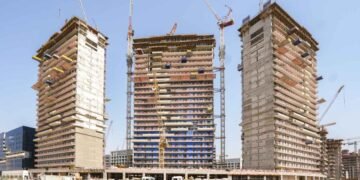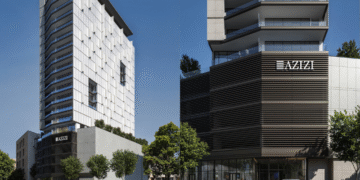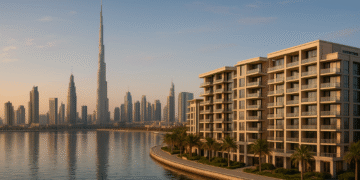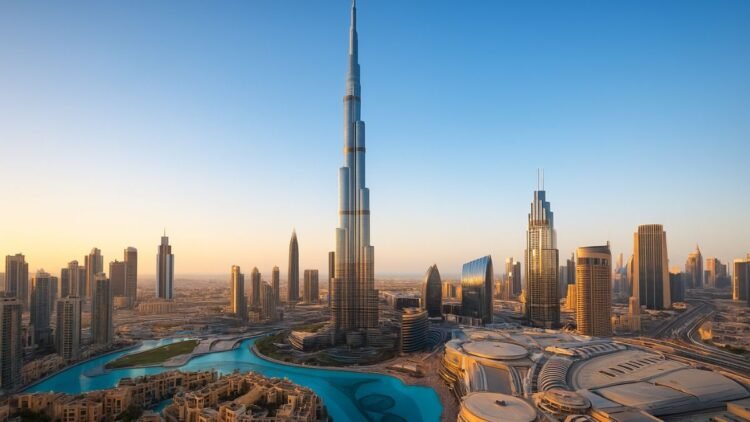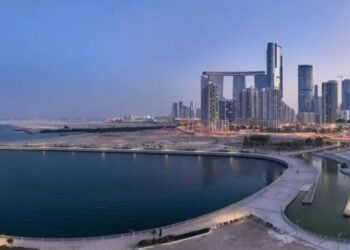Dubai, UAE – Indian families are increasingly directing savings and investment into Dubai’s property market, viewing it as a stable, tax-efficient refuge that preserves capital and generates rental income. Analysts and industry reports say Dubai real estate for Indian family wealth has emerged as a preferred diversification destination for both high-net-worth households and middle-class families.
Property consultancy Knight Frank recorded a record 169,000 property transactions in 2024 valued at AED 367 billion, a level of activity that analysts say reflects deep liquidity across both residential and commercial segments. Such volume, the firm says, has attracted global buyers and sustained demand for prime real estate.
“Dubai has really set itself as a global safe haven… safe for families and stable politically and financially,” said Richard Waind, group managing director at Betterhomes, in comments carried by Reuters. The remark underscores a common refrain among brokers who see safety and policy clarity as key pull factors for overseas capital.
Demand from Indian buyers spans prime waterfront villas and branded residences to mid-market family apartments, and increasingly includes commercial assets such as offices and logistics facilities. Residential yields in Dubai frequently range between 5% and 7%, often higher than yields available in many Indian metros, making rental income an attractive component of family portfolios.
Long-term residency incentives and investor-friendly rules add to Dubai’s appeal. The Dubai Land Department’s investor visa (Golden Visa) and clear freehold ownership regimes for foreigners provide legal clarity and residency pathways that many Indian families find attractive. Combined with the absence of capital gains and inheritance taxes, these structural features support the view that Dubai real estate for Indian family wealth can serve as a secure store of value.
Indians Lead Overseas Buyers
Indians have become a leading nationality among Dubai buyers. Market reports from Betterhomes and transaction data cited by media tracked by consultants show Indians topping buyer nationalities in 2023 and representing a significant share of prime buyers in late 2024. That cohort ranges from entrepreneurs and professionals to family offices and non-resident investors.
Commercial real estate is increasingly on the radar of Indian family offices. Knight Frank and Colliers note rising institutional and family office interest in office and logistics assets, propelled by multinational expansions in the Gulf and growth in e-commerce. Long-dated leases in these sectors can provide predictable cashflows that appeal to investors seeking stable returns.
Drivers Of Demand
Analysts point to macro stability and sustained infrastructure investment as pillars of confidence. Knight Frank’s research highlights Dubai’s population trajectory and pipeline projects as long-term demand drivers; Savills ranks Dubai among the world’s top prime residential markets for prospective capital growth. These professional endorsements reinforce why many advisers recommend Dubai real estate for Indian family wealth as part of a strategic allocation.
“Dubai has been one of the most resilient destinations,” said Philippe Zuber, chief executive of Kerzner International, commenting on the emirate’s rapid recovery after global shocks and its open policies toward investment. Such resilience factors into family office decisions when weighing cross-border allocations.
Purchasing patterns differ by wealth segment. High-net-worth individuals and family offices typically prioritise capital preservation, privacy and lifestyle, selecting villas and branded residences in enclaves such as Palm Jumeirah, Emirates Hills and Jumeirah Bay Island. Middle-class families and mass affluent buyers often target apartments in Dubai Marina, Downtown Dubai and Jumeirah Village Circle for rental yield and proximity to schools and services. Advisers say matching product type to investment horizon is critical.
Regulatory and remittance frameworks shape buyer behaviour. India’s Liberalised Remittance Scheme (LRS) allows resident Indians to remit up to $250,000 per financial year for overseas investments, a channel many use to fund Dubai purchases. UAE banking rules and mortgage criteria for non-residents also influence deal structure and leverage. Advisers urge buyers to use licensed brokers, verify developer credentials and register ownership with the Dubai Land Department to reduce transaction risk.
Market Resilience
Data show market resilience, not invulnerability. Knight Frank documented prime price gains in early 2024 even as supply dynamics shifted; other consultancies reported tight luxury listings alongside steady sales volumes. Investors should account for sectoral differences — residential, retail, office and logistics each display distinct cycles — and plan exit and liquidity strategies accordingly.
Wealth managers and family-office advisers interviewed for this report said diversification benefits are tangible. A mix of prime and mid-market residential holdings, combined with selective commercial exposure, can hedge domestic political and currency risk while delivering rental income and optionality for relocation or education needs. They add that structured estate planning is essential for long-term inter-generational wealth transfer.
Foreign buyers should also weigh ownership costs. Service charges, maintenance and insurance vary widely between freehold towers and villa communities and can materially affect net yields. Legal advice on succession, trusts or other cross-border estate instruments is recommended for families seeking to preserve wealth across generations. Those practical steps are part of why advisers assert Dubai real estate for Indian family wealth must be treated as long-term stewardship, not a short-term trade.
Financial planners emphasise that real-estate allocations work best when integrated with a family’s broader asset plan. Dubai real estate for Indian family wealth can provide inflation protection and rental income that complement equities and bonds. At the same time, investors should remain mindful of timing, leverage and local market dynamics when building portfolios that include Dubai property.
As Dubai pushes to position itself as a global wealth hub and continues infrastructure and regulatory reforms, industry surveys and registry data indicate Indian family investment is likely to remain a central pillar of demand. For families considering the emirate, careful due diligence, legal compliance and a clear investment horizon are essential prerequisites for using Dubai real estate for Indian family wealth as a strategic allocation.
Discover more from Invest Dubai Today - Dubai Realty Insights
Subscribe to get the latest posts sent to your email.




